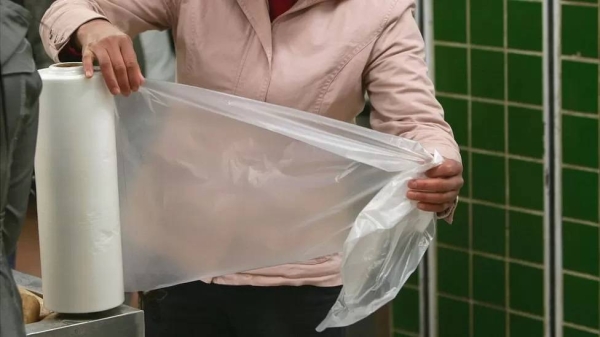
Battery cages for layer hens will become illegal in New Zealand from 2023 but animal welfare campaigners are urging the government to scrap the replacement colony cages, which they say are just as bad.
The plan to ban battery cages has been 10 years in the making – in 2012, the previous National party government committed to phasing them out by 1 January 2023.
Battery cages are broadly considered to be detrimental to the health and wellbeing of the birds, which cannot exercise natural behaviour and are exposed to infection and disease because of the cramped conditions. Most of Europe, including the UK, banned the use of battery cages in 2012; Mexico, Israel and Canada have also banned battery cages. Australia announced in August it would phase out the cages by 2036.
New Zealand has 3.9 million hens for egg production, according to the Ministry for Primary Industries. The export value for the year ending June 2022 was about NZ$18m (£9m), while the Egg Producers Federation of New Zealand website reports that retail sales of eggs are worth upwards of NZ$286m.
The ministry does not keep records of how many hens have been transitioned out of battery cages into colony cages, but the federation’s executive director, Michael Brooks, says as of December 2022, 10% were in conventional cages (and would be gone by 1 January), 33% in colonies, 29% in barns and 34% free range. In December 2012, 86% were in battery cages.
The ministry worked with industry to ensure compliance with the incoming ban, said Gray Harrison, the ministry’s animal welfare manager. “As part of that our animal welfare inspectors inspected 26 chicken farms over the past 12 months to ensure they would meet the 1 January 2023 transition deadline,” he said.
The animal welfare group Safe is happy to see battery cages phased out but was disappointed colony cages had been promoted as an alternative, said Jessica Chambers, its head of campaigns.
Colony cages – sometimes referred to as enriched cages – are larger cages that house roughly 60 hens. They are required to allow space for scratching, perching and nesting.
But Chambers said the hens were still living in cramped cages and despite the “enriched” elements, the hens are not able to exercise natural behaviour, which is contrary to New Zealand’s Animal Welfare Act.
“In an ideal world, we wouldn’t be breeding hens that lay so many eggs and consuming them – we would just let them live their normal natural life,” Chambers said. “Egg-laying hens have been bred to lay an egg every day, whereas a normal hen would lay maybe two clutches – 12 eggs, maybe 24 eggs max – a year.”
Before the 2017 election the Labour and Green parties signalled their intent to scrap colony cages but that was yet to happen, Chambers said.
In a statement, the animal welfare spokesperson for the Green party, Chlöe Swarbrick, said the practice of factory farming was inhumane and provided no quality of life for animals.
The party does not support the use of colony cages and would like to see factory farming phased out, she said, adding that “‘better’ factory farming is still just factory farming”.
But the government has no plans to ban colony cages at this stage, said Meka Whaitiri, the minister for animal welfare.
The phased transition away from battery cages was in line with international best practice, Whaitiri said, adding that consumer demand for cage-free eggs was influencing the systems that egg producers use.
That consumer sentiment has driven the country’s big supermarkets to commit to stop selling colony eggs by 2027. Countdown supermarket says it will stock entirely cage-free eggs by 2025.
The federation warned that could lead to egg shortages. The supermarkets’ decision put “real uncertainty into farmers’ minds”, after many had spent “a million dollars plus to convert to the colony system”, Brooks said.
“This, combined with Covid [and] grain prices, saw farmers become ultra-cautious regarding business decisions, and the flock has shrunk to 3,400,000 hens down from 4,200,000 only 18 months ago.”
But Chambers said it was time New Zealand caught up with the likes of the EU, which is moving closer to a total ban on caged farming by 2027.
“These animals matter, they have personalities and they don’t want to live in a horrible little cage for their whole lives. I think it’s time – New Zealand is ready for it and I think our government is ready for it too.”












